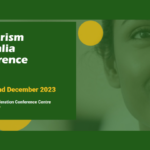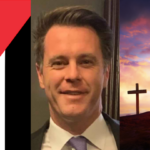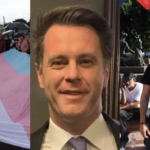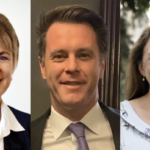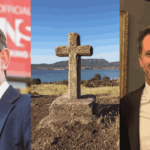Most Want Separate Church and State: Sydney Atheists’ Steve Marton on Minns’ Faith Council
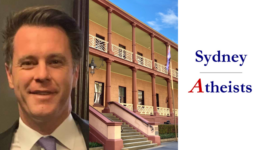
The last years of federal Coalition rule were marked by an attempt by prime minister Scott Morrison to advance the religious freedoms debate, in a manner that saw him dress up laws attempting to prioritise Christian liberties over all other, under the guise of religious discrimination laws.
At the state level, these laws were championed by self-confessed atheist NSW One Nation MLC Mark Latham, whose religious bill went before a committee review, which resulted in Coalition members recommending to pass such laws, prior to a pullback after Morrison’s federal quest failed.
The prospects of Labor governments at the recent federal and state elections brought hope that an end to this Christian Right attempt to prioritise religion in the political realm was in sight.
But, as the candidates for NSW premier lined up against each other, the Liberal’s Dominic Perrottet and Labor’s Chris Minns, both appeared to be two sides of the same coin: the pair are each ardent Catholics and weren’t likely to steer politics in a direction radically different to the other.
Indeed, the lead up to the March state election saw both Minns and Perrottet championing the establishment of their own versions of an advisory body made up of religious leaders that would serve to ensure that the concerns of those of faith are directly communicated to the executive.
Linking church and state
Minns’ version of the religious voice to parliament, the NSW Faith Affairs Council, has just been established, after the premier and NSW multicultural affairs minister Steve Kamper have been busy putting it together and appointing its 19 members since NSW Labor came to power in March.
As the Multicultural NSW website explains it, the council is charged with providing government with an “understanding and competency in relation to policies, programs and services that affect religious communities”, as well as providing advice, proposing solutions and facilitating dialogue.
The issues with prioritising the religious voice are aplenty. Over recent years, some MPs have been pushing for the end to the Lord’s Prayer being recited prior to a parliamentary sitting, in a growing sign that the last vestiges of the Christian religion should be separated from the running of state.
The other issue being raised by organisations, like the Rationalist Society of Australia, is that according to the NSW 2021 Census result, the nonreligious are the fastest growing sector of the community in terms of the survey’s religious question, with 33 percent of the state identifying as so.
So, as this religious council was to be established to provide NSW government with advice on the somewhat more intangible aspects of life, Sydney Atheists president Steve Marton applied for a position on the body in September, in order to ensure that the nonreligious are represented.
Sydney Criminal Lawyers spoke to Sydney Atheists president Steve Marton about his application for the council being rejected, the continuing attempt of religious MPs to reestablish religiosity in the political realm and how the nonreligious would recommend state politics be reformed.
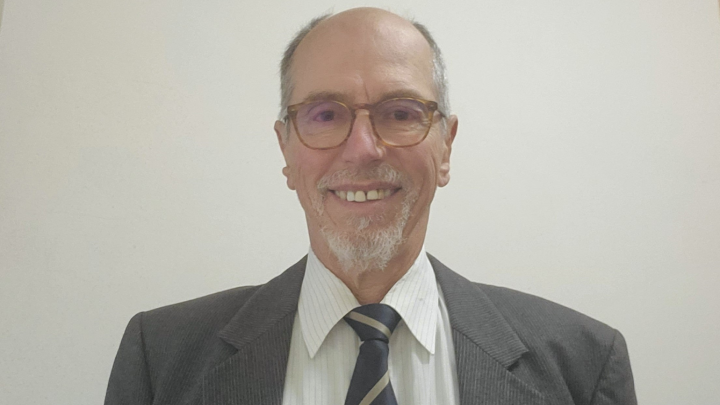
NSW Labor ran on a platform that included creating the NSW Faith Affairs Council, which is a body that has only just been established that will be providing faith-based advice and feedback regarding law and policy to state government.
Catholic premier Chris Minns has been taking quite the hands-on approach to this matter.
Steve, as the president of Sydney Atheists, what’s your take on the establishment of such a body at a time when a greater number of the constituency have no religion?
Whilst I consider it respectful that governments take into consideration the views of all of the electorate, I feel that it is inappropriate to establish a body that is exclusively of a religious bent.
Of course, a body that represents the will of all religions is potentially calamitous, as Catholics and Anglicans have traditionally been at odds, Shia and Sunnis have been at odds, and at some point, followers of virtually all of the religions have tormented, persecuted and, indeed, killed one another.
So, in the context of having a body that is agreed on all aspects of community and government behaviour, morality, ethics and the like, it is difficult to see anything other than superficial agreement by the various representatives.
Furthermore, given the religiosity of the parliament, I consider it inappropriate that the views of people who have either left a religion, or have never had a religion, do not have their views considered in equal measure.
If it is the will of the government to consider the views of minorities, there is no minority more afflicted than many of those who have left their religions.
Many of these people have become outcasts, isolated, tormented emotionally and often physically harmed.
Yet, they are given no consideration or respect by the government in this vehicle of the Faith Affairs Council.
You put in an application to the council, attempting to secure a place in order to represent the growing number of people without a religion. However, your application was knocked back.
How was the process of applying as a nonreligious person? And did you receive any feedback on why you weren’t successful?
The process of applying for a position was quite straightforward. I was even nominated by a Christian minister, who gave me a wonderful endorsement.
The feedback as to why I was knocked back was of very few words, a standard reply in the same vein of dismissal, as most letters written by politicians who only seem to have time for anyone during election campaigns, or when soliciting for campaign funds.
The Minns government announced the nineteen members of the NSW Faith Affairs Council in mid-November. This includes a leader from twelve separate major religions from across the board, plus seven additional members.
You recently told 2GB radio that you consider the leaders of each religion who’ve been selected to the council are “the most extreme elements of those religions”, and that they hold the “strongest views” on a number of issues.
Considering both sides of NSW politics had prioritised the formation of a religious council during the election, and, as you say, this is an extremely conservative faith-based group providing advice to state government on policy, how do you think this portends?
I consider a few positions and the process begs a few questions. The first being is government actually interested in the views of these religious leaders. And is it to be seen to be considering the views of the religious whilst moving on with an alternative agenda?
Another key question relates to whether the body serves to justify to parliamentary members that certain actions be taken despite their disagreement?
If the parliament takes the views of the leaders of the various religions as the views of all of the people in those religions, then they are sorely mistaken.
What they implement as a result may be contrary to the majority of those who might associate with those religions in active or passive ways.
My understanding is that less than 13 percent of the community are regular attendees of religious places of worship. How can 19 people possibly respect or know all of the views of all of those people?
We know that significant portions of the religious congregations believe in the separation of church and state, that they don’t have an issue with same sex marriage, abortion, voluntary assisted dying and a host of other issues that leaders stand firm on.
The infrequent or non-churchgoers are even more at odds with religious leaders. What proportion of these people would agree with their leaders?
In the 2021 NSW Census, 33 percent of respondents answered no religion. And this is a number underrepresented due to the way the religious question was asked.
In the five years, between 2016 and 2021, over 750,000 people moved from religion to no religion. One could reasonably assume that in the two years since then, another 300,000 people have moved to no religion. Why is there no consideration for these people?
Additionally, a faiths-based lobby group has recently established itself. Premier Minns attended the group’s launch as did a few other Labor members.
The CEO of this lobby group, Faith NSW, is Murray Norman, who’s been vocal in the debate that saw NSW hate speech laws strengthened on the wave of the distortion that those opposed to the genocide in Gaza are somehow antisemitic.
What are your thoughts about the establishment of a lobby group to petition government on behalf of religious organisations as we move into the year 2024?
I can’t argue with the right of people to create lobby groups, it is a democratic right.
What I do have issue with, is that government should not be blind or beholden to what lobby groups represent.
Government should be certain that lobby groups are not misrepresenting what they truly are.
This is all occurring after the reign of the Morrison government, which significantly prioritised the needs of the Christian Right via the religious freedoms debate. And we nearly got laws that prioritised religious rights over all others, while in NSW, One Nation MLC Mark Latham championed this same cause.
What are your thoughts on these developments taking place under Minns straight after these recent years of the Coalition trying to prioritise the religious in politics?
I had high hopes for the Minns government in pursuit of the separation of church and state.
There should be no scripture in state schools. There should not be chaplains in state schools. There should not be religious hegemony over the wider community.
What appears to be the case is disappointing and a slap in the face to those who may be marginalised by government policy if there is only input by religious bodies.
Quite apart from being denied a place at the Faith Affairs Council, the minister Steve Kamper would not accommodate a meeting with secular organisations.
So, when and where will the views of the nonreligious and the ex-religious be taken into account?
By the census of 2026, all Christian religions combined will be dwarfed by the nonreligious.
Does either major party imagine that this nonreligious majority would seek greater Christian influence in their lives?
Former PM Scott Morrison wore his Pentecostal faith on his sleeve. Ex-NSW premier Dominic Perrottet did so to a lesser extent in terms of his Catholicism, and whilst Minns hasn’t seemed to have raised his faith much at all, he is making all these religious moves in the background.
Are you concerned about this new leader having this fixation on prioritising religion in politics?
Yes, indeed, it is concerning. I would guess that these religiously leaning politicians imagine that they will gain kudos when the clergies go back to the pulpits of their flocks. This would be very misguided.
It is instructive that what the Liberals might have considered their rock-solid support base, turned sharply away from them in Mackellar, North Sydney, Warringah and Wentworth.
Coincidentally, these are among the most irreligious Liberal electorates in NSW.
And lastly, Steve, how would Sydney Atheists like to see NSW politics and government reformed? And would you say there’s more religious sentiment involved in politicking than your average citizen would expect?
There are a number of issues that need cleaning up from a secular point of view. The first is the abandonment of Christian prayers at the opening of parliament.
This would accommodate the less religious, ex-religious, nonreligious and the religious of other faiths. It would also mean that politicians would spend more time governing.
The removal of scripture from class time is a key issue. Religion is a private matter, not a public one. As there are so many religions, they can’t all be right.
They are a matter of belief, not a matter of fact, other than in the privacy of their own minds. There is so much to learn, so much for our children to know, and so little time to absorb it all.
There is no room for the billions of dollars spent on chaplains in schools, period – let alone in the public system.
When children have problems with their peers, teachers, family, health, emotions or sexual considerations, the appropriate people to deal with these issues are social workers and psychologists. If I was sick, I would go to a doctor, not a clergyman.
Religious institutions should not be exempt from taxation either. It is inappropriate for organisations, such as the Seventh Day Adventists, to have an economic advantage over the organisations that pay tax and fund the broader Australian community.
The federal funding of religious hospitals and nursing homes should be tied to good behaviour, cover abortions for those who seek them, cover voluntary assisted dying as requested and provide contraception as requested.
Federal funding of religious schools should be linked to the proviso that they cannot attempt to indoctrinate students whilst providing an education.
Many parents send their children to established schools that happen to have a religious bent, not because of the religious bent, but in spite of any religious bent. The perception is that these schools have successful educational outcomes.
The settings for chaplaincy in the armed forces policy should be changed so that they accommodate secular services.
Over 55 percent of members have no religion. However, there are virtually no nonreligious chaplains to help with the social and psychological issues of members. Chaplains who themselves lose their religion are encouraged to quit.
And religious misdemeanours should have consequences not just in punishment, but in losing voice, finances and power in parliament and law.
Legislation should be passed to protect citizens from religious persecution, such as physical and mental abuse of those who choose to leave their religions.
And lastly, encouragement and financial assistance should be provided to organisations that would, or do, support individuals who have left religions.
Indeed, the overwhelming majority of the people of NSW would like church and state to be separate.
And they would expect government policy to be instituted on the basis of merit rather than religious influence.


